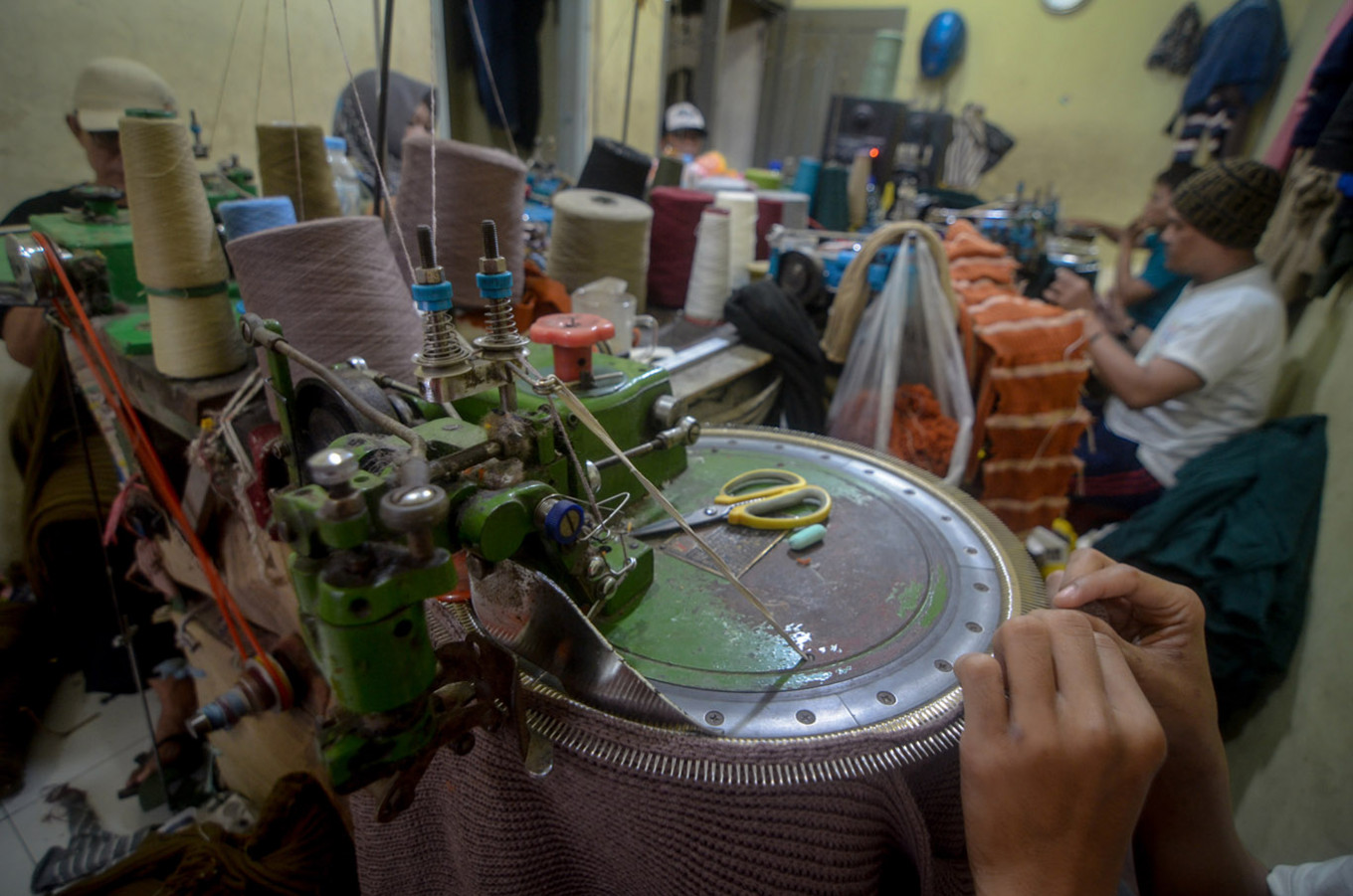Popular Reads
Top Results
Can't find what you're looking for?
View all search resultsPopular Reads
Top Results
Can't find what you're looking for?
View all search resultsRCEP expected to increase competition for RI firms
The world’s largest regional trade agreement could potentially pose challenges for Indonesia’s telecommunications and information and technology industries, as well as the labor-intensive textile, footwear and auto industries.
Change text size
Gift Premium Articles
to Anyone
I
ndonesia might see increased competition in various industries following the signing of the Regional Comprehensive Economic Partnership (RCEP), despite the deal providing wider market access and investment opportunities, business players and experts have stated.
As the world’s largest regional trade agreement, the RCEP could potentially pose challenges for Indonesia’s telecommunications and information and technology industries, as well as the labor-intensive textile, footwear and auto industries, according to the Indonesian Chamber of Commerce and Industry (Kadin).
“The government needs to boost the competitiveness of our investment climate in these industries,” Kadin deputy chairwoman Shinta Kamdani told The Jakarta Post via text message on Tuesday.
“This is to ensure that the potential investment from the RCEP is channeled toward improving the competitiveness of our exports, which still fare poorly in the region, instead of using a protection [mechanism] that is counterproductive to improvements in competitiveness, productivity and efficiency of our industries at home.”
While the agreement presented economic potential worth US$24.6 billion, Indonesia must improve its ease of doing business rating to catch up with its RCEP peers, said Shinta.
Between 2018 and 2019, Indonesia’s ranking on the World Bank’s Ease of Doing Business Index stagnated at 73rd, despite seeing a slight annual improvement in the score.
Along with the nine other members of the Association of Southeast Asian Nations, as well as Australia, China, Japan, South Korea and New Zealand, Indonesia signed on Sunday the RCEP with the hope of boosting trade and investment and dampening the impact of COVID-19 on the economy.
The ASEAN-led mega trade deal, whose members represent nearly one-third of the global economy, will eliminate 90 percent of tariff lines within 20 years.
The agreement is also expected to increase Indonesia’s gross domestic product (GDP) by 0.05 percent by 2032, according to an estimate from the Finance Ministry’s Fiscal Policy Agency.
It is also predicted to present wider opportunities for Indonesia to promote commodities like plant-based fiber, paper, chemical, rubber, plastic, mineral, metal, electricity, gas, wood and food products, according to the Indonesian Trade Ministry.
RCEP countries as a whole accounted for 61.6 percent of Indonesia’s overall exports and 71.3 percent of overall imports last year, according to the ministry.
[Graph: Big markets]
However, the share of Indonesian exports to the group accounted for only 9.3 percent of its GDP, according to American global trade data company Panjiva.
“A key area of under representation for Indonesia in its exports to the RCEP group versus the rest of the world is in apparel and footwear,” read a note released on Monday by Panjiva.
“One challenge for growth will come from many of the other RCEP countries also being keen exporters of apparel.”
The products accounted for 13.9 percent of Indonesia’s overall exports, but only 3.1 percent of its exports to the group, according to the research note.
Panjiva also highlighted that the Indonesian garment industry was still recovering from the downturn induced by the COVID-19 pandemic.
Indonesian apparel exports to RCEP countries were down 21.9 percent year-on-year in the May–June period, according to the note. Publicly listed textile company PT Pan Brothers, for example, saw a 19.3 percent annual decline in its shipments over the period.
Indonesian furniture, palm oil, rubber and coffee each also have a smaller share of exports to the group relative to the share of exports to the world.
“Taking advantage of the RCEP will therefore require the Indonesian government to find ways to build a relative competitive advantage in its largest export areas,” the research note reads.
Meanwhile, the Indonesian Textile Association (API) expects the RCEP to lead to fiercer competition as it allows its Chinese counterparts to have more open trade with Japan and South Korea, both of which are major markets for Indonesian textiles.
“No matter how we try to be efficient, it is not possible to compete against China in terms of price,” Rizal Tanzil Rakhman, the association’s secretary-general, told the Post in a phone interview on Tuesday.
“We also lose to China in terms of competitiveness of infrastructure, electricity cost, labor cost and raw materials.”
The government sought to overcome the competitiveness issue by improving the country’s regulatory climate through the recently passed Job Creation Law, developing infrastructure and lowering logistics costs, said Indonesian Trade Ministry spokesperson Fithra Faisal.
Fithra said Tuesday the jobs law was expected to cut red tape, increase productivity and improve labor wages.
“This takes time because it requires teamwork across ministries,” Fithra told the Post in a phone interview.
“We see not only competition as we join [the RCEP], but also the cost of not joining is far greater due to potential trade and investment diversion, which would negatively affect our economy.”










